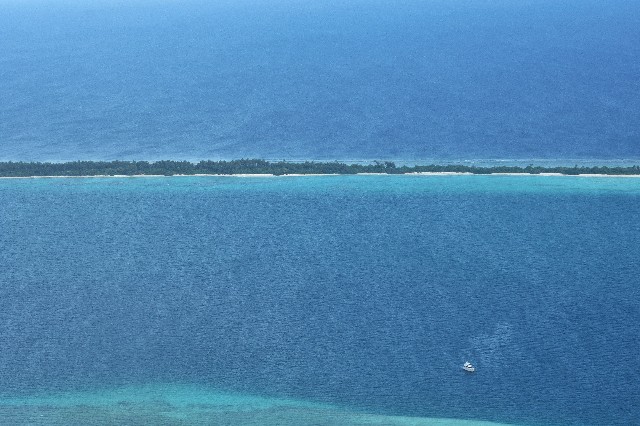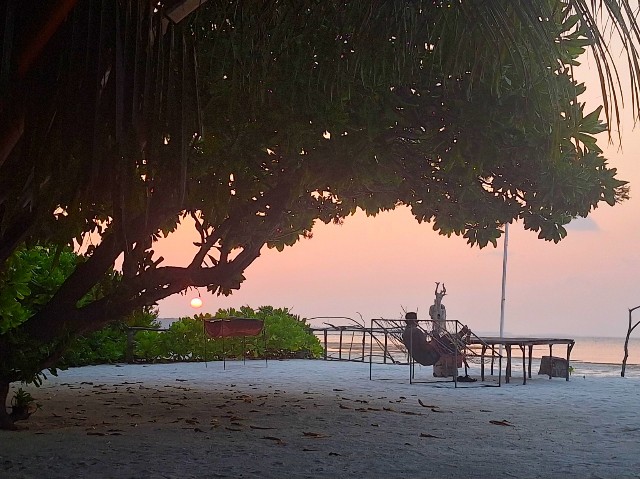The Maldives – a paradise floating on azure seas. This Islamic nation has a little-known traditional stimulant called “Supari.” Also known as dried betel nut or Areca Nut, my unexpected encounter with this curious food happened at a small café on a local island.
What is Supari?: A Traditional Stimulant Rooted in Islamic Culture

Supari has an appearance similar to truffles or nuts
Supari is thinly sliced and dried betel nut, which is widely enjoyed across Asia. In the Maldives, it’s consumed regularly, much like chewing gum after meals. Compared to the fresh betel nut known in Taiwan, its effects are milder, positioning it as a legal stimulant acceptable for Muslims to enjoy.
For a report on fresh betel nut, check out this article!
A Chance Encounter

Coffee shops that open nightly. In the predominantly Muslim Maldives, cafés function as social venues instead of bars.
I encountered Supari at a small coffee shop in Dhidhdhoo, an island in South Ari Atoll. While enjoying an evening coffee in this island without alcohol-serving bars, a local resident suddenly approached me. He seemed to enjoy our conversation and offered to buy me a coffee.

Along with the coffee came an unfamiliar patterned fruit. It resembled a nut, but was somehow different. When I asked, he told me it was Supari, a type of chewing tobacco. As I wondered how to consume it, he kindly demonstrated, saying “Chew it well and swallow.”
Tasting Experience: Unexpected Flavor and Effects
When I first put this Supari in my mouth, an unexpected bitterness spread. I questioned whether this was truly meant to be eaten. Seeing my reaction, the man smiled slightly and advised, “If it’s bitter, eat it with these leaves.”

If it’s bitter, consume it with the leaves
Following his advice, I tried it with the leaves, and indeed, the bitterness became milder. This must be wisdom gained through years of experience. The unique flavor gradually spreading in my mouth was certainly mysterious, suggesting some kind of effect.
The Reality of Effects: Too Mild for Modern People?
Supari is said to have mild stimulating effects. However, apparently when betel nut is processed, its potency decreases dramatically, and the dried, sliced Supari has significantly reduced effects. I tried several pieces but didn’t notice any substantial effects.

I tried eating it by following his example, but didn’t experience any stimulating effect
Meanwhile, the local man became increasingly cheerful as he enjoyed his Supari. For Muslims who abstain from alcohol, perhaps even this mild stimulation provides sufficient relaxation.
How to Obtain It: Surprisingly Accessible

Many varieties of Supari are sold in supermarkets in Malé
Supari is readily available throughout the Maldives. Various types are displayed in supermarkets in the capital, Malé, offering a wide selection.

Supari in snack-sized packaging
Later, I found and purchased small, snack-sized packages of Supari at a store on Dhidhdhoo Island. I tried eating it while sitting on the beach, but again, didn’t feel any special effects. Perhaps it’s simply too mild for modern tastes and sensibilities.

Small amounts still had no effect. To experience the true effects, one might need to abstain from alcohol and coffee for a while.
Supari’s Place in Modern Maldivian Society
Supari is still consumed daily as part of traditional Maldivian culture. However, its effects are milder compared to fresh betel nut, and it seems to be cherished more as a post-meal palate cleanser and social tool.
In the Maldives, an Islamic nation, strong stimulants like alcohol are restricted. In this context, Supari serves as a safe alternative providing moderate stimulation, particularly popular among older men. However, as the WHO has warned, betel nut contains carcinogenic substances according to recent research. While trying a small amount for cultural experience likely has minimal impact, habitual consumption could inevitably affect one’s health.
Conclusion
My encounter with Supari was more than just a meeting with an unusual food. I felt the warmth of a local who kindly engaged with a foreign stranger, experienced a stimulant unique to Islamic culture, and above all, realized that having such experiences is the true essence of travel.
Indeed, its effects might be unsatisfying for modern people. However, the heartwarming cultural exchange born from this chance encounter with a different culture has been etched in my memory as an unforgettable experience.





